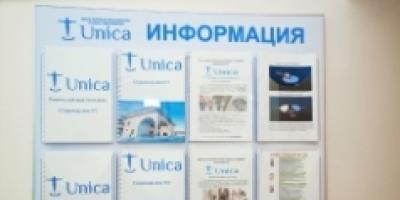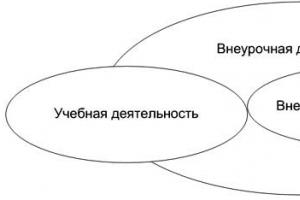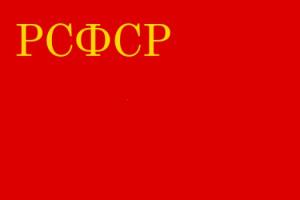Recently, people have stopped appreciating what they have; they strive to reach the heights of fame and recognition. Loss of mental balance, loss of harmony, integrity, balance in society provokes the emergence and growth of nervous disorders such as depression and phobias.
What is depression and how to get rid of it
Defining and recognizing the disease is a complex process, because a large number of types of depression have specific, pronounced features and an individual course. Depression is a common disease characterized by mental disorders and deviations from norms of behavior.
Diagnosis, consultations, development of methods and treatment of depression in a Moscow hospital and the price of therapy depends on the individuality of the patient and identification of the degree of the disease. Specialists at the Family Clinic will help find approaches and convince the patient of the need to accept help and provide assistance, including from relatives. Prices for therapy are quite affordable and are chosen based on the recommendations prescribed by the doctor and the client’s level of financial ability.
Forms of manifestation of depression are expressed in several directions:
- Clinical depression, a type of illness that is diagnosed by doctors
instantly. The symptoms of the manifestation are clearly defined. Along with this type, chronic depression is observed, which is protracted. Negative interest and decadent mood accompany the patient for several years; - Manic depression is the most complex subtype of the disease. Mental
disorders depend on hereditary genes or nervous disorders after injury; - Psychogenic depression is formed due to the negative impact on
psychological consciousness of a person. The patient renounces society, withdraws into personal space and prefers loneliness to company; - Postpartum depression occurs in women after childbirth or miscarriage.
The root cause of the disease is increased hormonal levels in the body. Women who have given birth develop a feeling of anxiety about taking inappropriate actions or actions, and in the event of the loss of a child, the type of depression can develop into a classic or endogenous form. Postpartum depression, its symptoms and treatment will be provided by specialists from the Family Clinic. With the help of developed individual therapy methods, specialists will quickly remove the patient from a negative state; - Endogenous depression also occurs in severe form. Cause of illness
lies in brain processes that are provoked by severe mental disorders.
Treatment of depression and its elimination
The decision about the need to get rid of depression and phobias is made by the family and the patient’s desire to get rid of the illness. Treatment of depression, reviews of clinics are based on achieving positive results. Highly qualified specialists of the Family Clinic will prescribe a set of measures and determine the cost of treatment, depending on the depth and extent of the disease. The choice of therapy depends on the stage of development of depression, so the following stages are distinguished:
- Psychotherapy, one of the surest methods used to remove
depressive states. Sessions teach the patient how to properly manage a situation, even the most critical one, and how to manage feelings. The result of visits to a psychologist will be adaptation to natural working conditions, elimination of internal anxious feelings and states, normalization in communication with society; - Drug treatment is prescribed for advanced forms or
the need to quickly react and save the patient from an attack. The clinic for the treatment of depression and phobias, reviews from grateful patients and their relatives raise the level of the institution. The specialists at the Family Clinic are highly qualified doctors with many years of experience and an individual approach to each client.
In addition to therapy at the Family clinic, the support of relatives and immediate circles is needed, as well as the desire of the patient himself to return to an active life that brings joy.
PRICES FOR TREATMENT AT THE FAMILY CLINIC
Consultation with a psychiatrist is free
Psychotherapy
Analyzes
| Biochemistry (glucose, cholesterol, total bilirubin, ALT, AST, albumin, gamma GT, potassium, sodium) | 2430 rub. |
| Virological studies (virology) | 3100 rub. |
| Bacterial infections (smears) | 2500 rub. |
| Basic hormone block | 6400 rub. |
| Thyroid hormones | 1500 rub. |
| Tests for rheumatism (C - reactive protein, rheumatoid factor, antistreptolysin, hyaluronidase) | 1600 rub. |
| Steroid profile | 5300 rub. |
| Neural test | 4700 rub. |
| Visceral test | 4700 rub. |
| Abbreviated immune status (IgG, IgM, IgE, IgA) | 2400 rub. |
| Detailed immune status (immune status, CEC, interferon status with selection of immunocorrectors) | 6800 rub. |
| Drug concentration in blood | 4700 rub. |
| Concentration of metabolites in the blood | 4700 rub. |
| Pharmacogenetic analysis | 4700 rub. |
| Cytokine profile (IL1, IL6, IL 10, TNF) | 7800 rub. |
| Complete electrolyte chart | 9700 rub. |
| Complete map of amino acids | 9700 rub. |
| Hemostasis (APTT, INR, fibrinogen) | 1150 rub. |
| Glycated hemoglobin | 550 rub. |
| Microelements (Zn, Cu, Al, Li, Pb) | 1950r. |
Diagnostics
| EEG | 2450 rub. |
| Galvanic skin evoked potentials | 2800 rub. |
| Auditory evoked potentials | 2800 rub. |
| Visual evoked potentials | 2800 rub. |
| Cognitive evoked potentials | 4000 rub. |
| Response to significant stimuli | 2800 rub. |
| Doppler ultrasound of the brain and neck vessels | 2800 rub. |
| EEG monitoring (4 hours) | 9500 rub. |
| Daily EEG monitoring | 13650 rub. |
| Study of night sleep structure | 13650 rub. |
Non-drug treatment
TREATMENT IN A HOSPITAL
The cost of treatment is from 5000 rubles/day
Attention! The cost of treatment ALREADY includes:
- 24-hour medical supervision
- daily consultations with the attending psychiatrist
- dynamic assessment of mental state according to international standards
- general blood analysis
- general urinalysis and cultures
- surfactant content test
- blood chemistry
- serological blood tests
- hormonal test
- neurotest
- comprehensive assessment of the immune system
- neuropsychological and pathopsychological examination
- diagnostics of personality type and structure
- diagnostics of social and labor status
- diagnostics of sensitivity to psychotherapy methods
- hardware assessment of functional brain activity (EEG)
- electrocardiography (ECG)
- fluorography of the chest organs
- consultations with a neurologist, endocrinologist
- modern medicines
- a wide range of psychotherapeutic techniques (cognitive therapy, psychoanalysis, Gestalt, art therapy, etc.)
- group psychological trainings
- psychoeducational sessions for patients and their relatives
- accommodation in a comfortable room
- four meals a day
Depression is a mental disorder accompanied by depressed mood, anhedonia (loss of the ability to rejoice), pessimistic thoughts and decreased physical activity. This serious mental state, threatening both the life and health of the patient and those close to him, should not be confused with ordinary mood swings. Often, outpatient therapy does not cope with the problem. And then the best way to solve it is to treat depression in a Moscow hospital, the price of which at the Lazarev clinic is very affordable, and the quality of services is impressive.
Treatment of depression in the inpatient department of the Lazarev Clinic
Reluctance to seek help from a hospital is natural and understandable. But we must not forget that sometimes this is the only way to help yourself or a loved one cope with the disease and overcome it. In addition, a hospital is a temporary measure that will end as soon as the patient’s psyche is removed from a serious condition.
Our specialists provide treatment for depression at the highest level; reviews of the clinics speak for themselves - we have many grateful patients and their families. We offer:
- 24-hour assistance from doctors of any specialization, depending on the individual characteristics of the disease.
- Conducting a complete diagnosis of the patient's condition.
- Providing treatment with proven, reliable and maximally safe drugs in accordance with a clearly coordinated schedule for their administration.
- The possibility of almost round-the-clock communication between the clinic’s medical staff and people close to the patient in order to obtain information about the progress of treatment, recovery prognosis, and characteristics of the disease. At the same time, the prices for the services of the clinic’s specialists do not change.
- Conducting family psychotherapy sessions, the purpose of which is to teach people close to the patient how to properly communicate with the patient, to instill the importance and necessity of understanding the patient’s mental state.
- Comfortable living conditions and modern wards, the latest medical equipment - all this is guaranteed by our clinic for the treatment of depression and phobias. The reviews left by our patients and their families speak for themselves.
- Also, in the hospital, psychotherapy sessions and physical education classes are mandatory, and water procedures are performed, which not only helps to fight the disease, but also maintains the general condition of the body in good shape.
- Doctors at Dr. Lazarev's clinic have extensive experience helping women who have recently given birth and have been diagnosed with postpartum depression. The symptoms and treatment of this disease in our country are usually underestimated, and this often leads to neglect of the disease and forced treatment in a hospital.
The points listed above allow us to confidently assert that the fight against depression in the hospital of the Lazarev Clinic is the best choice for treating a severe form of the disease. At the same time, the cost of staying in our departments is fully justified by the individual approach to the patient’s problem, the variety of treatment tactics and the highly qualified doctors.
Price list for clinic services
| Name of service | Included in the service | Cost, rub./day |
| COMFORT | Accommodation in a 2-bed ward. Five meals a day. All medical services and procedures prescribed by a doctor are already included in the price. | 10000 |
| PREMIUM | Accommodation in a single room. Five meals a day. All medical services and procedures prescribed by a doctor are already included in the price. | 12000 |
| LUX | Accommodation in a single large room with a spacious bathroom. Five meals a day. All medical services and procedures prescribed by a doctor are already included in the price. | 15000 |
| Hospital for patients with alcohol dependence | Accommodation in a 2-bed ward. Five meals a day. Treatment of the underlying disease. | 5000 |
Price list for boarding house services
| Name of service | Included in the service | Additional services for stays of a month or more are included in the price | Cost, rub./day |
| COMFORT |
|
2400 | |
| CARE |
|
Hairdressing services, hygienic manicure and pedicure (at the guest's request) | 3000 |
| HELP |
|
hairdressing services, hygienic manicure and pedicure (at the request of the guest). | 3600 |
Along with anxiety disorders, depression is one of the most common. Depressive episodes can develop as an independent disease or accompany bipolar affective and recurrent depressive disorders; they often occur with organic diseases of the brain (epilepsy, psychoorganic syndrome, mental pathology of late age, consequences of traumatic brain injury).
In everyday life you can often hear: “I’m depressed.” At the same time, depression means a bad mood that arises for a variety of reasons: an umbrella forgotten at home in rainy weather, the absence of an expected bonus at the end of the year, a conflict with a teenage son, etc. However, a bad mood does not mean the presence of depression. Depression is a complex of symptoms.
Symptoms of depression
One of its signs is prolonged lack of mood (more than 2 weeks). Moreover, no external circumstances (a joke, a pleasant meeting, joyful and long-awaited events) can change it. In some cases, a person may experience causeless anxiety, concern for loved ones and their own health. Depression is always accompanied by decreased performance, fatigue, and difficulty concentrating. The most familiar, everyday tasks seem complex and difficult to accomplish. Irritability appears, often for the most insignificant reasons. Interest in the environment disappears: work, favorite activities, the feeling of pleasure disappears. Food seems tasteless, your favorite show seems boring, a party with friends seems like a pointless waste of time. The future is seen in gloomy colors, unpromising and joyless.
Another manifestation of depressive disorders is sleep disturbance. Night sleep becomes shallow, intermittent, with early (2-3 hours earlier than usual) awakenings. Appetite decreases, which leads to rapid weight loss.
The most dangerous symptom of depression is suicidal thoughts, which in the most severe cases of the disease can lead to specific actions. It is important for others to understand that the patient cannot control his condition and get rid of the disease through willpower. We can cope with a bad mood. Good music, delicious food, a funny joke - and life gets better. But depression is a disease that requires special, often drug, treatment. It is impossible to cure it by simple conviction or self-hypnosis.
So, the main symptoms of depression:
decreased or impaired appetite.
Types of depression:
- depressive reactions
- psychogenic depression
- reactive depression
- seasonal depressive disorder
Prolonged stay in a depressive state can aggravate the course of somatic diseases, such as hypertension, angina pectoris, bronchial asthma, complicating their treatment and worsening the prognosis. If symptoms of depression persist for more than 2 weeks, you should consult a psychiatrist.
Specialists at the EMC Clinic of Psychiatry and Psychotherapy diagnose and treat all types of depression, including prolonged and severe depression, anxious depression, and chronic depression. Hospitalization is possible in a comfortable inpatient unit of the EMC hospital on the street. Shchepkina.
Diagnosis and treatment of depression
The main method of examination to establish a diagnosis is a consultation with a psychiatrist. Undoubtedly, a therapist, neurologist, psychologist can assume the presence of depression and refer to a psychiatrist, but the final diagnosis and choice of treatment strategy (medicines, psychotherapy, etc.) should remain with a specialist in the treatment of mental disorders.
A patient's complaints of low mood or anxiety alone are not enough to indicate a depressive disorder. For a reliable diagnosis, a psychiatrist must identify at least four symptoms of depression, assess the time of their onset, severity, severity, etc. Specially designed questionnaires can serve as auxiliary examination methods, for example, the Beck Depression Inventory, MMPI (Minnesota Multidimensional Personality Inventory), etc., which They may also suggest the need to consult a specialist.
Diagnosing depression involves testing to rule out other disorders with similar symptoms. For this purpose, magnetic resonance imaging of the brain (MRI diagnostics) and laboratory tests of thyroid hormone levels are performed. Psychiatrists diagnose depression during a clinical interview using developed specialized questionnaires, tests and scales.
The most effective method of treating depression in the EMC private clinic combines drug treatment and psychotherapy. Comprehensive rehabilitation programs for depressive disorders have now been developed, which include massage, reflexology, special gymnastics, as well as work with patients’ families.
Treatment of depressive disorder is carried out taking into account the severity of the condition and usually includes three stages:
Relieving (“cutting off”) therapy is aimed at eliminating the symptoms of the disease as quickly as possible.
Stabilizing therapy helps relieve residual manifestations of depression and is aimed at combating relapses.
Prevention of recurrent episodes of depression in the future.
Often, the first stage of treatment for depression takes place in a 24-hour hospital at a multidisciplinary hospital at the European Medical Center in Moscow. The second and third are carried out within the framework of a day hospital or on an outpatient basis. The most justified and clinically effective in the treatment of depression is a program of psychotherapy (mainly cognitive behavioral therapy) with a course of psychopharmacotherapy.
Advantages of treatment at EMC
An integrated approach is used to treat psycho-emotional disorders: a combination of pharmacotherapy, cognitive behavioral psychotherapy and non-drug treatment methods (TMS, biofeedback therapy).
We not only treat depression, but also teach patients to suppress negative thoughts and emotions, and return them to an active and happy life.
The Clinic of Psychiatry and Psychotherapy has a comfortable hospital, which makes it possible to treat even severe forms of depression.
Depression is a disorder of mental activity, the manifestation of which includes a complex of three characteristic factors: decreased motor activity, impaired thinking, as well as the most important component of the presented triad - lack of mood and anhedonia (loss of the ability to rejoice). Patients with depressive syndrome always show a loss of interest in life and low self-esteem. Often people with this disorder resort to drinking alcohol or drugs.
Today, many people equate ordinary mood swings with the term “depression”, not realizing the fact that depression itself is, in fact, a mental disorder, and in some cases can be dangerous, both for the lives of people around the patient and for others. his own life.
According to statistics, it is known that about 15% of the total population of the Earth suffers from depression, a third of which are women. This pathology negatively affects communication with people, work, study, etc.
Symptoms of depression
Signs of developing depression in a person include:
- sad state;
- anxiety, the feeling that something bad will happen soon;
- irritability;
- self-deprecation, self-flagellation - the patient usually blames himself for everything bad that happens around him;
- insomnia, drowsiness;
- loss of the ability to enjoy life and everything that previously brought pleasure to a person;
- general weakness, malaise;
- decreased sexual desire (sexual intercourse ceases to give a person pleasure);
- avoidance of people, reluctance to communicate with others, isolation;
- indecision, which can manifest itself even in small things;
- the emergence of dependence on alcohol, which, according to patients, can help them “forget” and solve their problems;
- a feeling of meaninglessness in future and present life, which can sometimes reach suicidal thoughts.
Classification of depression
Depression is usually classified according to the severity of clinical manifestations:
- Light
- Moderate
- Heavy
Depressive syndrome can also be classified according to the variants of the course of this pathology:
- Single episode of depression
- Recurrent depression
- Changes between depressive and manic phases of the disease (called “bipolar disorder”)
- Mood swings between vague depression and persistent elation (cyclothymia)
- Dysthymia
Which doctor treats depression?
When experiencing depression, a person often does not immediately realize the whole problem. A person usually understands the full complexity of the situation only when a mild form begins to progress, and the manifestations of depressive syndrome interfere so much with the patient’s normal life that he simply cannot help but seek help from a specialist. The first doctor a patient goes to is not always a psychiatrist (despite the fact that he can help the patient find a way out of this situation). This is usually explained by a person’s fear, or simply not knowing where to turn in such a situation. Non-psychiatric doctors can also give a referral for a consultation with a psychiatrist, but in no case should you be afraid of this, since a referral for a consultation only means that the doctor wants to find out more about the patient’s mental characteristics and does not imply registration with a psychiatrist. mental asylum.
In fact, only a psychiatrist, a person with a higher medical education, has the right to diagnose and treat depression.
If symptoms of depression appear that do not go away within two to three weeks, you should not self-medicate, you should consult a specialist, since prolonged depression can be treated more complexly than the disease in the initial stages.
Outpatient treatment for depression under the supervision of a physician
In most cases, depression is mild or moderate. In this case, it is necessary to treat depression on an outpatient basis under the supervision of a specialist and only in accordance with his instructions.
In each specific case, the doctor must understand the cause of the disorder, and only then does it become possible to cure depression and prevent its relapse. Usually there is no such pathology that arose due to one specific cause. There are always several reasons for the development of depressive syndrome. Often, psychological causes (psychological trauma, overexertion, stressful situations, childhood or youth psychotrauma) can be combined with physiological ones (cerebral circulatory insufficiency, traumatic brain injury, stroke, menopause in women, hypovitaminosis, etc.).
Treatments for depression are varied and vary mainly depending on the severity of the condition. When choosing the type of therapy for outpatient treatment, the psychiatrist must take into account its possible impact on the quality of work, driving, and a person’s behavior in society.
Usually, the doctor does not resort to just one type of treatment, but prescribes complex therapy for the best and fastest effect - the leading methods are drug treatment and psychotherapy.
Use of medications for depression
Today, drug therapy is the most effective way to treat depression. Depressive syndrome is treated with medications at different stages of development. For this purpose, the following drugs belonging to the group of antidepressants are used:
- Monoamine oxidase enzyme inhibitors (Nialamide, Transamine, Moclobemide).
- Tricyclic antidepressants (Imizin, Amitriptyline, Maprotiline, Fluoxetine) - tablets belonging to this group of drugs also have sedative and psychostimulating properties.
According to statistics, treatment of depression with antidepressants is effective only in 60% of cases. That is why drug therapy is usually supplemented with psychotherapy sessions, with the help of which the doctor helps the patient understand the cause of the disorder and helps solve the problem at its very root.
Treatment of depression in a hospital
Treatment of severe depression requires closer monitoring by medical personnel, which is why the patient is usually transferred to a hospital. In accordance with the law, transfer from outpatient to inpatient treatment does not require the patient’s consent if his condition threatens the life and health of others or his own.
Treatment of depression in a hospital involves a clearly coordinated schedule for taking medications, conducting psychotherapy sessions, maintaining the correct daily routine, physical education, and water procedures. This entire complex is aimed not only at treating the disease itself, but also at maintaining the body.
Treatment of depression with hypnosis in some cases is one of the highly effective methods of getting rid of this mental disorder. Firstly, due to the production of a large amount of biologically active substances such as endorphins and serotonins, the patient feels peaceful and happy after a hypnosis session, and secondly, hypnosis is aimed at solving the psychological cause of depression. The use of hypnosis during psychotherapy sessions can often reduce the number of appointments with a psychotherapist by 2-3 times. The patient can also practice meditation himself, which also promotes the production of endorphins and serotonin.
If a person begins to notice some symptoms of depression that last for a long time (at least two to three weeks), it is imperative to consult a specialist - a psychiatrist, who will not only confirm or refute the diagnosis of depression, but also will prescribe treatment appropriate to the specific form of depressive syndrome in a given patient. In no case should such symptoms be ignored, since depending on the nature of the patient, the reasons that led to the development of depression and the presence of concomitant pathologies of the nervous system, the disease can progress at different rates, often becoming severe in a fairly short period of time.
Treatment of depression in a hospital is the optimal solution for patients with severe chronic form of the disease. Symptoms of depression are not always given due attention; as a result, outpatient treatment becomes ineffective, and the disease poses a serious threat to the patient and others.
The cost of 1 day of hospital stay is determined individually and depends on the specific case. The price is influenced by the type of disease and the severity of the patient’s condition, as well as the class of the selected room. On average it is 3-5 thousand rubles.
|
Cost, rub. |
||
|---|---|---|
|
Consultation with a psychiatrist |
||
|
Consultation with a psychiatrist, candidate of medical sciences |
||
|
Consultation with a psychiatrist, doctor of medical sciences, professor |
||
|
Consultation with a neurologist |
||
|
Consultation with a neurologist, candidate of medical sciences |
||
|
Consultation with a neurologist, Doctor of Medical Sciences, Professor |
||
|
Nootropic therapy (improves memory, attention, increases mental performance, has a positive effect on the central nervous system) |
1 dropper |
|
|
5 droppers |
||
|
General restorative therapy (normalizes the processes of all body systems as a whole) |
1 dropper |
|
|
5 droppers |
||
|
Vitamin therapy (used when the body’s vitamin reserves are depleted and helps increase immunity and improve metabolism) |
1 dropper |
|
|
5 droppers |
||
Severe depression is characterized by the appearance of suicidal thoughts or intentions. It is necessary to take emergency measures to save the patient’s life, so the hospital is the only place where the patient is under the supervision of specialists around the clock.


Symptoms of depression
Characteristic manifestations of depression:
- indifference;
- fast fatiguability;
- loss of positive moments in life;
- isolation;
- depression;
- slowing down thinking processes;
- sleep disturbance;
- weight loss due to poor appetite.
Some patients try to get out of the pathological condition with the help of alcohol or drugs. The appearance of the first signs of the disease requires contacting qualified specialists to identify the cause, early diagnosis of the disease and safe treatment.
Severe depression must be treated in a hospital. Signs of a severe form of the disease:
- complete apathy to what is happening;
- refusal to eat, indifference to one’s appearance;
- depressed state;
- suicidal thoughts.



Causes of depression
The causes of depression remain not fully understood. Factors contributing to the development of the disease are:
- severe stress;
- disruption of the endocrine or nervous system;
- presence of depression in close relatives;
- consequences of traumatic brain injury;
- mental trauma in childhood;
- drug use.
Inpatient treatment for depression at the UNICA clinic
Treatment in a hospital minimizes the aggravation of the symptoms of the disease and reduces the risk of developing a danger to the patient’s health. When deciding where to treat depression, pay attention to the Unika clinic in Moscow. Patients of the clinic are in a calm environment under round-the-clock supervision of specialists, they are guaranteed an examination by doctors on all issues that arise, and moral support.








